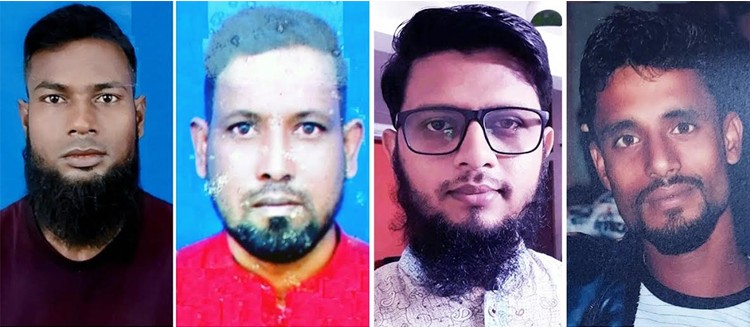It was a Friday in Rangpur. The date — July 19 — should have been just another day, like any other. But for four families in the city, it became a day of heartbreak, bullets, and unbearable silence.
Just three days earlier, Abu Sayeed, a bright student of Begum Rokeya University and a coordinator of the Anti-Discrimination Student Movement, had been shot dead by police during a protest. His death shook Rangpur to its core.
Then, on July 19, as thousands gathered after Juma prayers to demand justice, the city saw something even darker: the chests of four young men torn open by police bullets. These weren’t criminals or threats to society. They were everyday people — workers, students, fathers, sons. Their names were Hossain, Abdullah Al Tahir, Merajul Islam, and Moslem Uddin Milon.
It was supposed to be a celebration for Nazmeem Islam, wife of Merajul Islam, one of the four young men lost their lives on that day.
Nazmeem Islam was looking forward to the evening. It was her 17th wedding anniversary. Her husband, Merajul, had brought her a new three-piece suit that morning and asked her to wear it.
But by sunset, she was a widow.
Merajul, 36, worked at a banana shop. He wasn’t part of any political party. He was just a man trying to give his sons — three-year-old Hanifa and 15-year-old Nazil — a better life. That afternoon, he was in the wrong place at the wrong time. A single bullet ended everything.
“Now where do I go with my two sons?” Nazmeem asked, tears choking her voice. “How will I pay for their schooling? That one bullet shattered everything we built.”
Her youngest son still calls for his father, not understanding why he never comes home.
Milon, also 36, was a goldsmith by trade. But in July last year, he joined the Anti-Discrimination Student Movement after hearing of Abu Sayeed’s death.
He told his wife, Dilruba Akhter, “By Allah, I’ll stand for justice. Even if I have to give my life.”
At 4:30 pm, as the protest swelled near Raja Ram Mohan Market, Milon was shot dead. He left behind two sons: Bayezid, 15, and Tanzid, just 8.
Dilruba’s voice breaks as she speaks: “He was a good father. He just wanted justice for another boy who died. Now my boys are fatherless too.”

Tahir was a final-year student of ceramics at the Bangladesh Institute of Glass and Ceramics in Dhaka. He’d returned to Rangpur on July 10, wanting to be with his people as the movement grew stronger.
His mother, Shirina Begum, made him fried papaya and rice that morning. It was his favorite.
He left home after breakfast, promising to be back by evening.
That afternoon, Tahir was killed by police firing near the City Market. His friends Asif, Nazir, and Suman — who were with him earlier — survived. Shirina now lives alone in a small rented room, clinging to his memory.
“I just want justice,” she said softly. “That’s all a mother can ask for.”
Hossain, 27, sold fruits and vegetables from a van cart. He did whatever work he could find — helping masons, running errands — to support his wife, Jitu Begum, and their five-year-old daughter, Sinha.
He wasn’t part of the protests, but he got caught in the chaos as police began firing. One bullet ended his life.
Now, Jitu wakes up every morning to silence. “We didn’t have much,” she said, “but we were happy. My daughter cries for her father. I have no answers.”
The curfew, the armored vehicles, the sudden gunfire — none of it has faded from Rangpur’s memory. On July 19, it wasn’t just bullets that tore through bodies. It was the tearing apart of families, dreams, and futures.
Each of the four men had dreams as modest as they were beautiful: to provide, to protect, to live. Now, their wives and children are left to carry the burden of their loss — and the weight of injustice.
As the nation watches, their loved ones ask just one thing: that their deaths not be forgotten. That their killers be held accountable.
Because behind every protest sign, behind every tear shed, are people — not just statistics. Sons. Husbands. Fathers. Martyrs.


